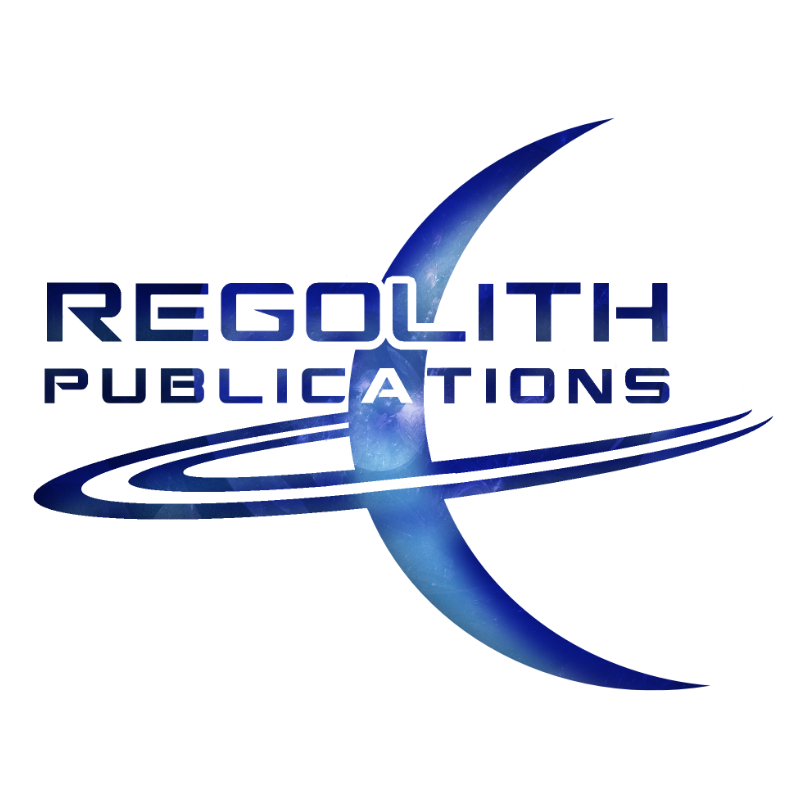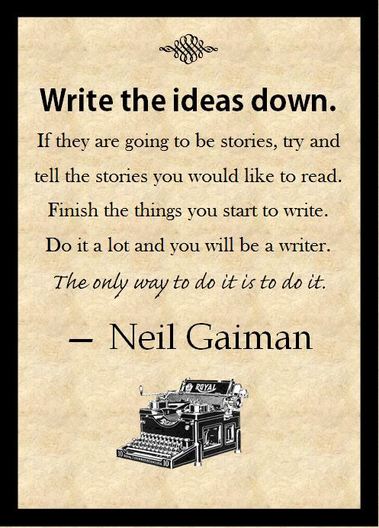 I write because I love to write. It's really that simple. I write because I have stories to tell. If people want to read those stories, if they find value in my stories, if they come to love and appreciate the stories as much as I do -- that's the most flattering, humbling, and best compliment an author (nay, an artist) could ever receive. And as much as I love and appreciate my readers, the truth is, I'm selfish. Like most writers, I write only for myself. I write the stories I want to read. I tell the stories that amuse me, and only me. I tell the jokes I like to hear and which amuse me, and that you may or may not come to fully appreciate. The bottom line is, I'm not writing for an audience, I'm writing for an audience of one -- me and only me. Of course, that doesn't mean I ignore my loyal readership's input. I listen. I do. But at the end of the day, I'm writing because it acts as a balm to my soul. It makes me feel good inside just to get the words out and, well, that makes me a selfish writer. Does that make me a big-shot? I don't think so. I'm giving very little consideration to what others have to say, sure, but it only makes sense. After all, nobody in their right mind would try to tell an artist exactly how they ought to go about painting a portrait when what they are painting is perfectly fine. The artist is fully capable of making their own artistic choices. The art is there for your amusement, but it wasn't intended for you. What's more, nobody but the critic would ever tell a professional painter how to improve their paintings merely to suit the personal tastes of the critic, when that artist could probably care less about what that critic's tastes are -- because he (the artist) is a grand artificer, he or she paints for art's sake, not the sake of his or her critics. I suppose the same can be said of most writers too. Most authors in the entire history of the written word have written the stories they have wanted to tell -- and those that didn't -- well, suffice to say they either burnt out only to fade into obscurity or they came back with a vengeance and ended up writing their magus opus. So I write because I love to tell stories. I write because, for me, writing is like breathing -- I need to do it or I feel I would suffocate until I gasped my last breath and then dissipated into non-existence leaving nothing behind. Writing is how I leave my stamp on the world. It is how I cope with and make sense of the world. Writing is something I need to do just to stay sane. That's why I write.
0 Comments
Some authors have piles of rejection letters for unpublished novels that are slowly wasting away in the corner of their writing rooms. Not me. I have a total of three rejection letters. Three. So how did a guy like me who hardly submitted a story to any publisher land a publishing contract? How did a guy with zero contacts in the business, who was new to the game and didn't have a single friend in the writing world get hand selected to join the new upstart publishing imprint of the renowned post-apocalyptic and urban fiction powerhouse that is Permuted Press? Easy. Luck. But all that luck ... that only came after all the hard work. So, in reality, hard work = luck. Remember that. But, also, remember that getting lucky sometimes means being in the right place at the right time, like I was. But also, hard work. Here's the thing. The hard work is what counts. Because, the truth of the matter is, I could have been in the right place at the right time but simply gotten overlooked, ignored, or worse -- dismissed entirely. I hate rejection. Hence my apprehension of submitting to big presses only to await more rejection. Yeah, that's not for me. In fact, I hate rejection so adamantly that I refuse to put myself into such a situation. I just won't do it. The three times I did, well, I honestly thought those groups were looking for a writer like me. But they had other plans. That's fine. I'm not telling them how to run their publishing companies, but I also wasn't going to put in several years of hard work writing and polishing a story that would end up wasting away in the corner of my room along with a pile of rejection letters. Hell, no! So I decided to self publish my first fiction novel. I also was very specific in what I chose to write. I did a couple weeks of market research and found out that zombie fiction was selling like hotcakes (or is that crepes?) and I said to myself, why not take a stab at it? Did I know anything about writing zombies? Nope. Did I know anything about the genre itself? Not really. So this is where my hard work truly began. A year before I began writing my novel I read as many zombie novels as I could get my hands on. I actually ended up amassing more books than I had time to read, but building a catalog for easy research is always necessary when breaking new ground. So I read zombies, watched zombie movies, and befriended authors of zombie fiction online. Then after reading all the zombie fiction, finding similarities in themes, word usage, tone, etc., I decided to take from the best and leave the rest. Basically, I studied what seemed to make a good zombie book and what made a boring zombie book, and I decided to try using only the things that seemed to really work. I realized that good zombie books had character driven stories. The characters had real goals. Dialog was realistic, and the survival aspect was key to the story. The characters had to be kept moving, so the story had to keep moving, so after every twist a new challenge was presented and the characters would have to overcome these challenges. Eventually, the characters either grew or were killed off. And this is the basic recipe to a good zombie novel. The bad zombie novels, well, let me just say they were mostly military guys shooting lots of zombies. More military guys shooting zombies. Then some more military guys shooting zombies. 90% of the zombie books are military guys shooting zombies. I didn't want to be cliche like that. That doesn't mean all the books of military guys shooting zombies are bad. Some of them are rather well written, with lots of attention to detail, usually the author has some experience in the Armed services, and that's fine. But the truth is, they still only ever mustered up a story about military guys shooting zombies. Not very original. A total bore. Blarg! Not this again. The fastest way to turn me off to zombies is to write a story about military guys shooting zombies. But I digress. Some people actually like that genre. No problem with that. But there is no denying it is rather cliche. And since about every other zombie novel I read was just a continuation of the same old theme, I desperately wanted to tell a story involving something more original. Sure, my own zombie novel Bitten has military guys shooting zombies, but they're not at all realistic military -- more like an idealized version of what I imagine the perfect soldiers to be -- so it lacks realism in that department, but I gave them real characteristics, solid personalities, and really this is what drives the stories -- the individual -- not their occupation. Besides this, my story isn't about the military at all. They're just supporting cast members in a much bigger ensemble. The main characters are all civilians. But they all have real goals. Real hopes. Real desires. So what does all this have to do with self publishing? Well, when you write your first novel, no matter how long you've spent working out all the kinks, you still are going to need to have another set of eyes go over it. Preferably with a fine-tooth comb. You see, I made the rookie mistake of publishing my book BITTEN before I had hired an editor. And the only thing anyone saw was a bunch grammar mistakes and typographical errors. Most people aren't very forgiving. If they come across more than three mistakes in one chapter, they will destroy you in the reviews. Upon my first 1 star review, I quickly took my book off sale. I was embarrassed. I didn't want to seem like a hack writer. After all, I spent two long years working on my first novel. I needed it to be perfect. So I asked around. Who edited freelance for little old Indie authors like me? I was given a full list of names. And I checked them all out. And although they were all fine editors, I'm sure, only one of them stood out above the rest. This person was Monique Happy of Monique Happy Editorial Services (MHES). The thing that caught my eye was that almost all of the authors she worked with had great reviews on all of the review sites. Further, many of them had contracts with real publishers, and as such many of them were hybrid authors. So I hired Monique Happy to edit my novel Bitten. And she did an excellent job. Then I hired a professional cover designers to do the cover, and the rest is history. Well, almost. You see, here's where Lady Luck struck. Because just as Monique was editing my third novel, the offbeat dark comedy The Scarecrow & Lady Kingston, about a scarecrow that comes to life and joins the L.A.P.D., she had things going on behind the scenes which since has blossomed into an amazing opportunity. Permuted Press had the novel idea to expand into a broader publishing company. But they wanted to bring on new talent while at the same time not veering too far from their image. So they decided to create an exciting new imprint -- and Monique Happy was just the lady they had in mind for the job. I don't know the details, but I can assume that the people over at Permuted Press noticed the same thing I did. Monique was working with top notch talent, she had tonnes of clients, many -- like me -- were just breaking into the writing world for the first time. And they probably saw the potential of tapping this new talent. So Monique started Winlock Press, an imprint of Permuted Press, and she emailed me asking if I'd be willing to publish my Bitten series under the new imprint. I didn't hesitate to say yes. But what really surprised me was that she wanted to bring on my offbeat comedic noir The Scarecrow and Lady Kingston too. Here's where I hesitated. You see, I had only written one Scarecrow & Lady Kingston novel, but I was planning several more. I loved these characters, they were the best thing I have ever written or created, they were my babies, and I didn't want to sell the rights never to be able to write them again. So I said she could have the series if she let me write and produce the full saga as I imagined it. She wanted to know how many novels that would be exactly. I was thinking of five, but I threw out the number seven. Why seven? It's Lady Luck's lucky number. Monique said, "Yes." So here I am, contracted by a bona fide press to complete 12 novels (7 Scarecrow & Lady Kingston books and 5 Bitten zombie novels). But none of this would have been possible if I hadn't done all the hard work of writing the books -- of not being completely satisfied -- and then going out to hire an editor to take my books to the moon and back. So, maybe in the end it's one part luck and two parts diligence. But let me be completely honest with you, if I would have left my book riddled with errors, if I never went the extra mile to edit the darn thing, if I hadn't hired professional help, if I hadn't clinched my jaw and divvied up the dough to get the professional treatment, and if I hadn't taken the necessary time to find just the right person to do that -- my book would have faded into obscurity long ago. It would have remained just another one of those poorly written zombie novels which gets read only by a handful of zombiphiles and post-apocalypse junkies, but hardly anyone else. Who knows, it might have even signaled the end of my writing career. The proverbial nail in the coffin, so to speak. Proof that I really was a hack. But I didn't give up. I kept at it. And that's the important part. Keepin' at it, even when everything seems to be going wrong. Just keep at it. Now, Bitten is getting it's THIRD major release, and it is being published by a major publisher through which it will gain a new life along with a wealth of readership from a fan-base that is already locked in place, and this time there's no stopping it. Good thing I never gave up. So here's to the future! And, the moral of the story is, it pays to have your work professionally edited -- no matter how great of a writer you think you are. I’ve boasted before that I don’t get writers block. Although that’s true for me personally, I know that’s not true for everyone. So in this issue of “Writerly Things” I am going to talk about what I do to keep my muse fed and strong.
Now, the muse of inspiration is that psychological component of our imaginative thinking that spools up to hyper-drive speeds whenever something intrigues us or strikes our fancy. Those with overactive imaginations may never be without their muse, while others will find it hard to keep their muse by their side. The trick is *stimulation. The brain is a finicky thing. It likes being addicted to things. It wants to be addicted to things. The trick is not to let it get addicted to anything for too long, because here lies the mud-swamps of stagnation, a purgatory where things get mucked up due to the burn-out of being consigned to monotony. If you only feed your muse one thing, that’s like trying to maintain a healthy diet on Twinkies only. It’s impossible. You need to feed your muse a full course meal complete with veggies! Try not to let your muse get bogged down. If she (or he) is becoming complacent or too content, shake things up a bit – reinvigorate that relationship with a bit of excitement. A fat and bored muse is an unhappy and unhealthy muse. How do I keep my muse well fed? I stay busy. I do I keep my muse strong, I keep her engaged and active. But that doesn't mean we never relax together. Sometimes its about taking in the view, recharging our batteries, and resting our productive energies. You see, these down times when my muse is resting, these are vital. They are vital for the very reason that it helps prevent my muse from being confined to a prison. The muse has to roam free. The muse doesn't like pressure. She (or he) has to be laid back and carefree. If you pressure the muse, she will resent you. If you demand things of her, she will just leave you hanging, high and dry, without a single idea to wet the tip of your pen and without any inspiration to whet your imagination’s voracious appetite. This is why you need to feed your muse with ambrosia and pamper her in those down times. A fed muse is a happy muse. So how do I keep my muse active and fed? Gee, I’m glad I asked myself that so I can tell you! By day I am a school teacher. I deal all day long with prepubescent children and little kids. After work, I return home to where I have two wonderful kids of my own. That’s when daddy duties begin. My weekends are filled with either school related activities or doing things with my own children – usually both. When it comes to my children, I keep them active and busy too. And well fed. Active and well fed children are happy children. We will play at the park. We like to go on bike rides. We go to the zoo. We catch bugs. We visit the pet store or the pet cafes (e.g., a pet shelter where you can enjoy a drink while getting to know the animals – it’s a Japan thing). We go shopping. We go to movies. We go to museums. We do many, many things together. My son is only six months old, but I read him many picture books. He loves pictures books! Loves them! He squeaks, squeals, coos and chirps at every page. He loves the colors. He loves the rhythms of the written word. He blows spit-bubbles to them. Picture books are his thing. My daughter turned five this year and goes to preschool. Since we live in Japan we send her to a private preschool where she can take classes in English (it’s an International school that integrates Japanese students, mixed, and foreign students). My daughter’s name is Solara (it means sunshine in Greek) and we keep her very busy. She has weekly swim practice, abacus, and piano. She wants to do ballet too. She also does child modeling. Some days she tells me she just wants to stay home and relax, and those are our cuddle days where we plop down in front of the television and watch our favorite shows together. Most days, however, we don’t have time for TV. That is, we've never just set the child down in front of the television and left them there. If the television is on, it’s because there is a show we all want to watch together. That’s just how it is at our home. My son will likely be just as busy. As parents we are busy keeping them on their schedules! When evening time rolls around, we read books together or watch films. I introduced my daughter to the Back to the Future trilogy and the Jurassic Park films, to Doctor Who, and her personal favorite Batman. She’s only five, but she can name all of the Teen Titans and JLA. I've introduced her to Three’s Company, The Cosby Show, and my personal favorite House, M.D. She laughs as all of Dr. Gregory House’s jokes. Yeah, I know, what you’re thinking, even with a limited television policy, still, I probably show her too much television. I debated whether or not to allow her to watch certain shows at all. Doctor Who can be too scary for young children. I've skipped many episodes for that very reason. The same goes for House, as it is a mature show, and has mature themes and often shows graphic aspects of surgery. Some stuff I fast forwarded through or skipped. But the stuff I allowed her to see, she loved it. I've read my daughter Charlotte’s Web and numerous fairy-tales, “Jack and the Beanstalk” being her current favorite. I even began reading her Starship Troopers, mainly because I've never read it before and there’s only so much time in the day – she asked if I’d read it aloud to her, so I am. She thinks it’s boring so far. Her current dream is to become a doctor / super model – which is quite amazing to me. It’s an amazing dream. When I was five, my dream was to be able to draw a horse well enough so that it actually looked like a horse. That was the extent of hopes and aspirations. I still cannot seem to draw a very good horse. But I digress. My daughter, unlike her old man, expresses a high intelligence and a maturity that comes with it. Most people lack this intellectual maturity. Especially young children. None of my students have it. None of my students for the past decade have had it. But it’s not their fault; it’s partly genetic and partly environmental. There’s only so much you can do, but whatever you do, keep your child active and fed – and they will be happy children. And that’s what matters. I only bring this family related aside up because my daughter has never once complained to me about being bored. Well, that’s not entirely accurate. There was this one time where she complained about being bored because she was playing with her younger cousin and her cousin just wanted to play the same game again and again… and again… and again. That’s the mud-swamp of repetitious monotony. That’s where the mind stagnates. The moment you get stuck… you stop stimulating your brain and your muse sinks into the quagmire of mediocrity, and you feel hard pressed to get out again. Boredom breeds apathy, and soon enough you find yourself perpetually stuck in a state of being bored but cannot seem to muster enough gumption to do anything about it. Pretty soon your muse consigns herself to a slow death in that abominable quicksand of ennui, and as fate would have it, that is where the dreaded deadline sneaks up on you. And you’re not ready for it. Why? Because you have let your brain, and your muse, stagnate too long. The main trick to feeding the muse, I have found, is keeping the brain stimulated – overstimulated, in fact. It works. It’s tiring, but it works. It’s also why I tend to write two or three novels (both fiction and non-fiction) at the same time. Keep things shaken up means that if it seems like I might start to get stuck in one area I can drift to another area without losing momentum. Then I can slide right back over to where I left off without losing a pace. Heck, this is probably why I enjoy writing both fiction and non-fiction in the first place. For that matter, it’s probably why I like to genre hop, or blend my genres. It’s why I like to watch everything from kid’s animation to adult medical dramas. It’s why I try to fill every moment of my day and nights with something for my muse to chew on. The brain is not a muscle. It doesn't need to rest, except to get sleep and recharge. But when it’s going – you can throttle that thing all the way to top speed and keep it there. But that requires a bit of work to keep it stimulated. Like Charlie Sheen, the brain just has one speed, “Go.” My advice is, take advantage of that fact. But there is only so much you can feed your muse without your muse becoming obese. You don’t just want a well-nourished muse, you want a strong muse. One that is ready for the task. So you have to exercise that muse. At the end of the day, if you haven’t written anything, then nothing has been accomplished. Writing is an act of labor, and takes real work. Especially if you ever want to be any good at it. Practice makes perfect, after all. As Neil Gaiman once famously replied when asked about how one becomes a writer, he said: “Write the ideas down. If they are going to be stories, try and tell the stories you would like to read. Finish the things you start to write. Do it a lot and you will be a writer. The only way to do it is to do it.” And that’s the whole point. If you do happen to find yourself in the mud-swamps of ennui, the only way to get out is to pull yourself up by the bootstraps and get out. As Neil Gaiman so rightly puts it, the only way to do it is do it. The only way to be a writer is to write. If you don’t do at least this much then, obviously, nothing ever gets written. The stories stay forever in limbo, and you are not a writer – you would effectively be demoted to a dreamer with aspirations of one day becoming a writer. It’s not big secret. Writing is damn hard work. Especially if you have to juggle a family life and a full time career on the side. That doesn't mean writing is a hobby. I still write prolifically compared to most authors I know. I put as much time in writing as I do my day job – and then some. But when it comes down to it, writing isn't all fun and games. It’s a discipline. If you want to avoid the prison of the muse, you’re gonna have to keep your muse fed and put in all the hard work required to making something good – something that will satisfy both you and your muse – and hopefully a lot of other people as well. So you see, my muse never goes hungry. If anything, she is overfed. But, then, that’s a good thing because I don’t ever suffer from that dreaded “writer’s block.” I’m not saying this method will work for everyone, but it seems to be working well enough for me. Just some food for thought. Now go forth and write! My premier novel BITTEN: A Resurrection Thriller, is being re-released courtesy of WINLOCK PRESS, an imprint of Permuted Press, as BITTEN: Resurrection (The Resurrection Virus Saga Book 1).
The e-book is available for pre-order now (click HERE)! The paperback edition will follow sometime in July. After that the e-book of BITTEN 2: Land of the Rising Dead will also be re-released with new cover art. Finally, at the beginning of next year BITTEN 3: Kingdom of the Living Dead will be released. Stay tuned for more updates! If you're a fan of my supernatural / comedic noir series The Scarecrow and Lady Kingston, fear not, it will be getting the prestige treatment as well. I'll keep you all posted. Star Wars episodes 1-7. You've probably heard of them, no? Well, maybe you don't know all of them by name, but we certainly know A New Hope, The Empire Strikes Back, and Return of the Jedi by name.
The question becomes, as an author, should you number the books in your series or give them stand out titles and subtitles? Or both? I'm going to come out and say it, if you simply number your books in a series as Book 1, Book 2, Book 3, then chances are nobody will remember your books. They might remember the main title, but the reason subtitles stand out is that humans tend to remember things via what is called associative memory. It's because our brain makes links, or associations, between characters and events in a narrative that we can better remember a title. In fact, mnemonics or "memory theater" is one way we can learn large amounts of content, either using acronyms or else developing little narratives to aid in information retention. When the narrative is already there though, the information is easier to recall. Which is why some people are so excellent at quoting books and movie lines. It's also how we can recall the name of a character or title of a book. We know, for example A New Hope if where a holographic Princess Leia pleads, "Obi Wan, you're my only hope!" Everyone knows the name Obi Wan, because this line is so ubiquitous with Star Wars, even if they haven't themselves seen the film. We know that in The Empire Strikes Back this same Princess calls Han Solo a "scruffy looking nerf herder," and when Chewbacka laughs Han tells him, "Laugh it up, Fuzzball!" When Luke goes to be trained by Master Yoda we remember Yoda's sagely words, "Do, or do not. There is no try." And upon Cloud City, Luke faces the Lord Sith Darth Vader, who reveals to Luke the startling revelation that, "No, I am your father." In Return of the Jedi we remember speeder bike chases through the forest of Endor and fluffy Ewoks and Jaba the Hutt. All of these things are association we make between the events of the film / story and the title of that film / story. If it was just a number, we would have less incentive to remember what set each movie apart from the rest. Which is okay, if you want your series to all seem like one epic story, like Lord of the Rings. But if you want your books to stand out as original chapters of a much larger epic, then I recommend using original subtitles over simple numerical sequencing. Also, numbers are boring. Personally, I think if you only number your books then you lack a certain amount of imagination, because otherwise you would of thought up an original title, right? If an author can't bother to come up with an alluring title and subtitle, then I have to wonder if the rest of the book will be all that good as well. Also, numbering does make me get excited. Bitten: Resurrection, my zombie book of The Resurrection Virus series, says all it needs to. The second book, Bitten 2: Land of the Rising Dead contains both a numerical heading and an original subtitle. I chose to use both because Bitten 2 involves an entirely new cast of characters, in a different country, but I wanted readers to know it's still part of the same Bitten universe. Likewise, the upcoming Bitten 3 is titled Kingdom of the Living Dead. The fourth Bitten novel will be Bitten 4: Ancient of Dread Days. Currently I am plotting Bitten 5, but it's tentative title will be Bitten 5: Ragnarok. A nice end-cap title to compliment the first title: Resurrection. With my Scarecrow & Lady Kingston paranormal investigation detective series, I have opted to leave off the numbering entirely and just stick with original titles. My first book in the series is called The Scarecrow & Lady Kingston: Rough Justice. The second book will be titled The Scarecrow & Lady Kingston: A Slice of Grilled Americana. Although the books are part of a series, each story stands alone on its own, so there is really no reason to link them numerically. So the question is, what is right for you? Do you want your books to stand out? If so, then original titles and subtitles matter. If you want people thinking it's one giant epic, and you want them to view each book as a chapter in that epic, then perhaps numerical headings after the series name will suit your needs. Of course, you could always choose to use both, as I did with my Bitten books. Really, it's up to you. But if it were up to me, I'd always opt for more original titles over ordinary, boring numbers. Good luck! In storytelling, whether it be television, movies, books, comics, etc., for stories that are part of a series, or a larger whole, what one might call a saga, there is a tradition of carrying the reader into the next story by piquing their interest right at the last minute. There are three main ways to do this.
The first is what is called a “hook.” It literally means to hook your reader, like a fish, and reel them in. You know, keep them coming back for more. Now there are three types of hooks. They are 1) cliffhangers, 2) teasers, and 3) sliders. A slider is a lot like a cliffhanger. But it’s different in design since cliffhangers almost always leave the story on an open note. Often times, the cliffhanger happens en media res, literally in the midst of the narrative. Sliders do not always happen in the middle of the narrative. Sliders can have resolution, or they can begin a new story arch. That’s the key difference to keep in mind when talking about the differences between sliders and cliffhangers. The best example I can think of any show using sliders is Rondald D. Moore’s update of Battlestar Galactica. Often times the hooks would reveal some small tidbit of information, like who might be a Cylon. It’s not a cliffhanger, since the narrative doesn’t end suddenly en media res in a moment of suspense. It’s simply some added information that will play out at a later date, but piques your curiosity because you can’t wait to find out what will happen next time. In other words, it allows you to slide from one story to the next. At the same time, BSG has some amazing cliffhangers as well. One of my favorite sliders from BSG was when, in the pilot episode, the story ends with Giaus Baltar, the brilliant yet slightly mad scientist, and Six, the beautiful yet mysterious blonde, making love at his place when suddenly her spine starts to glow. She’s a robot?! Holy frack! What could it all mean? It's also worth noting that BSG also made great use of mini-teasers after the opening sequence in each episode, accompanied by super quick cuts set to the intensity of Japanese taiko drums. Really, it had it all. If you want great cliffhangers, look no further than HBO’s series True Blood. The Sookie Stackhouse novels, as well as the television series, utilized many of the best cliffhangers I’ve ever seen. Although the series is campy, and melodramatic, and full of cheese, it is a great one to study if you want to master cliffhangers. Also, the classic 1960’s Adam West and Burt Ward Batman television series had great cliffhangers! Everyone remembers the omniscient narrator reminding us to stay tuned in for next week’s episode, same Bat-time! Same Bat-channel. Sliders can also be found in comics too. My all-time favorite comic book series Planetary, written by Warren Ellis with art by John Cassady, made great use of sliders over cliffhangers as its main method of hooking the reader. This was because each issue was a self-contained story but the overall narrative was tied together via numerous subplots. Every story ended on a solid note, but there was some element, some subplot unfolding in the background, that slid right into the next issue and kept the narrative moving forward at a brisk pace while weaving a much more elaborate, nuanced story. Quite brilliant, all things considered. The television sitcom Arrested Development uses the third kind of hook, called a teaser. In this case, each episode ended with a short preview for next week’s episode, where Ron Howard would narrate scenes from the next episode, as a kind of introduction into what to expect next time, on Arrested Development – usually prefaced by those exact words – Next time, on Arrested Development. This short teaser allowed the viewer to slide right on in to the next story, while piquing curiosity at the bizarreness of what was introduced and wondering how it might all fit together. Now, I use film and television a lot in my examples over books because books usually are self-contained, standalone stories whereas television is episodic and relies heavily on all these aspects. But more recently this has changed. In recent years the publishing world has seen the rise of serial novels, like Harry Potter and the Twilight series. Currently, it seems that readers want larger, more involved, narratives. Which means modern authors will likely be challenged to write a larger series at least once, if not more, in their writing careers. What this means, of course, is that learning to write good hooks early on will only make you a stronger narrative storyteller later on. So now that you know the difference between the different kinds of hooks, i.e. cliffhangers, sliders, and teasers, this brings me to my final recommendation. If you want the mother of all hooks, cliffhangers and sliders galore, then (imho) that would have to be Robert Kirkman’s comic and television series The Walking Dead. The comic was, of course, already plum full of cliffhangers and hooks. The television series, on the other hand, took it to a whole new level. This is one of the reasons the series does so well. Well, that, and the fact that the drama and acting are always stellar, but the amazing use of hooks, cliffhangers, and sliders makes it one of the most compelling and addicting stories in both comic book and television form! |
Tristan VickBy day I am an educator and a cultural ambassador. By night I entertain notions of being a literary master. In reality I am just a family man and ordinary guy who works hard and loves writing just about as much as I love my family. Just about. AVAILABLE NOWNEWSLETTER
|

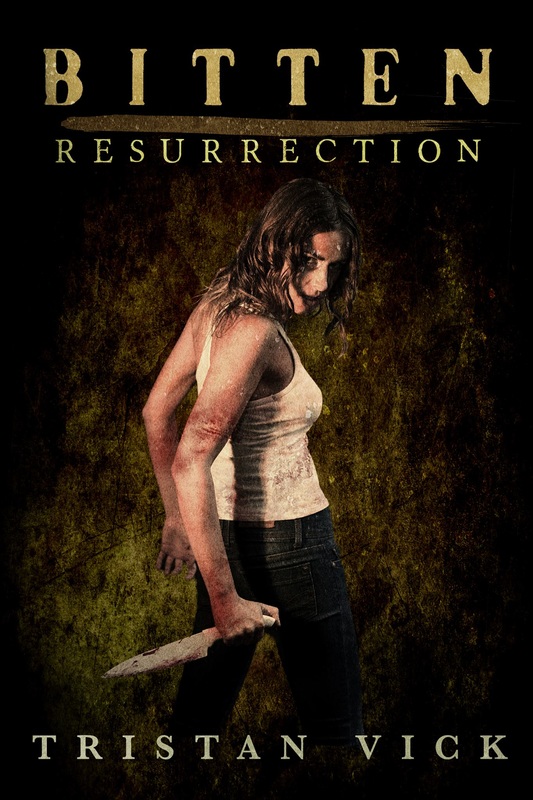
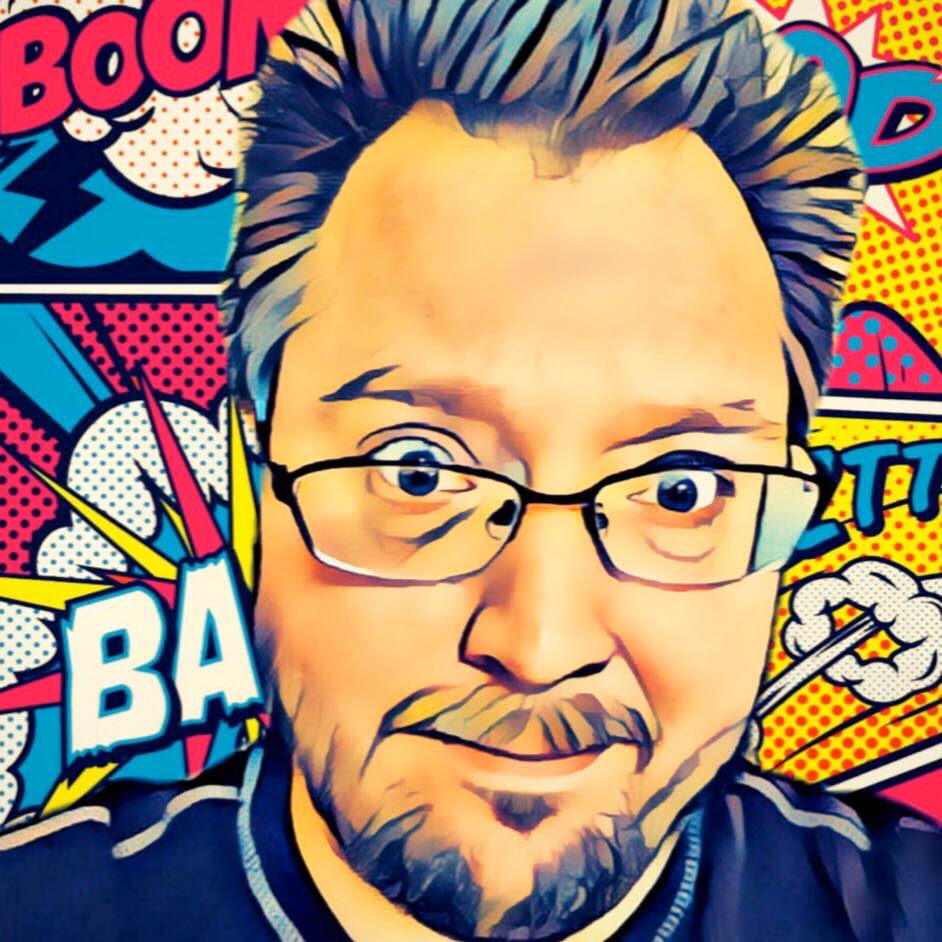
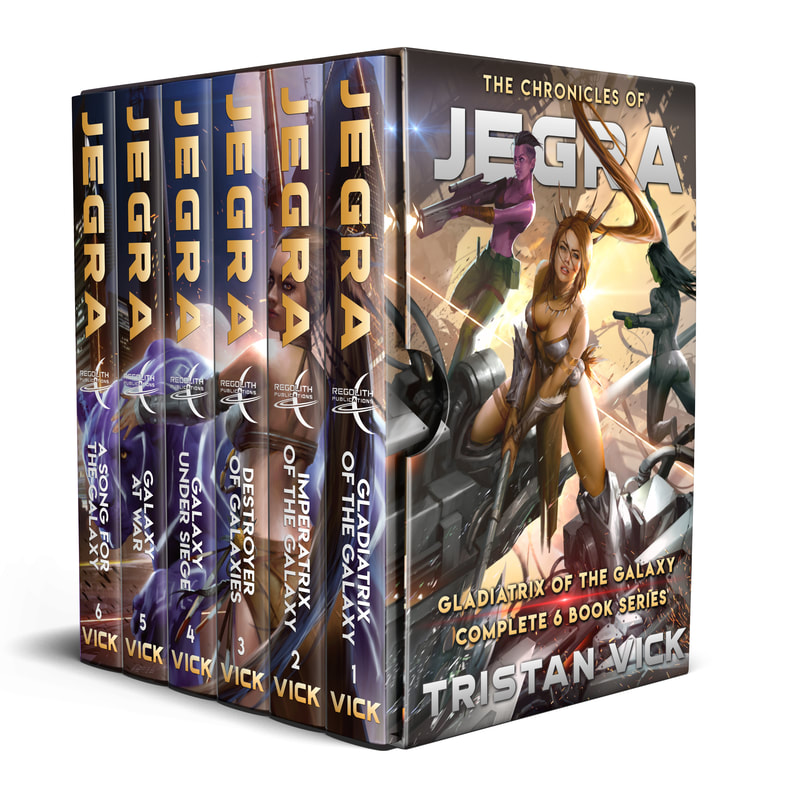
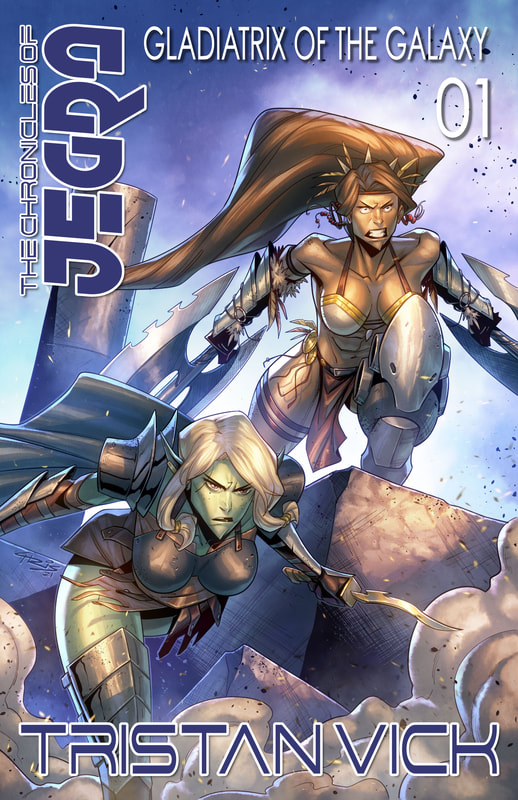
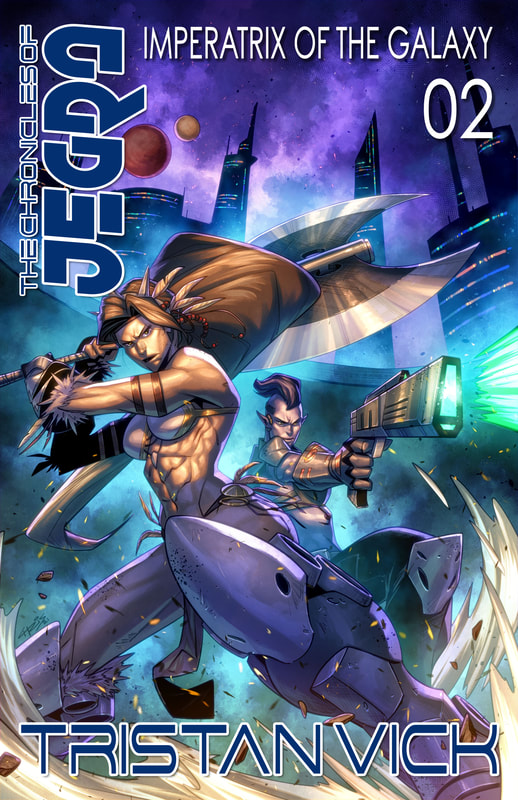
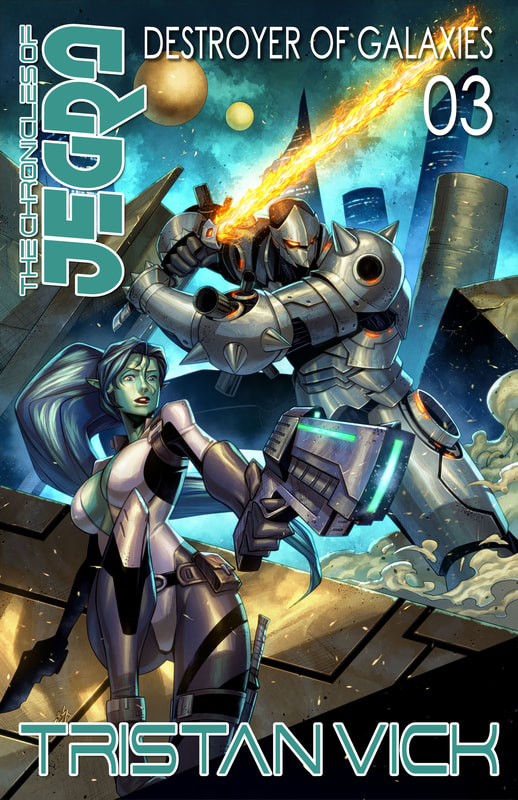
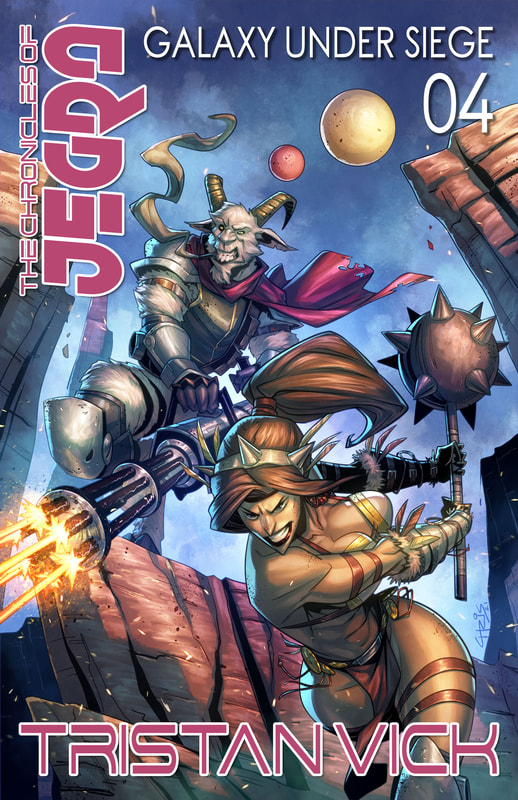
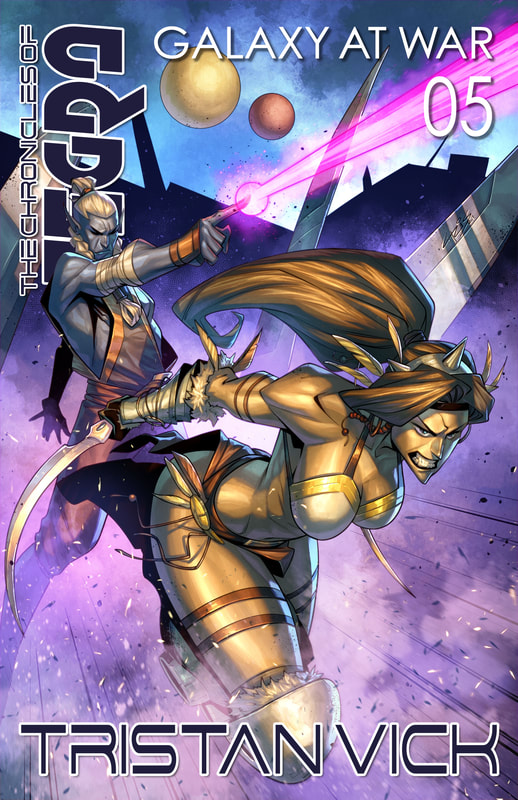
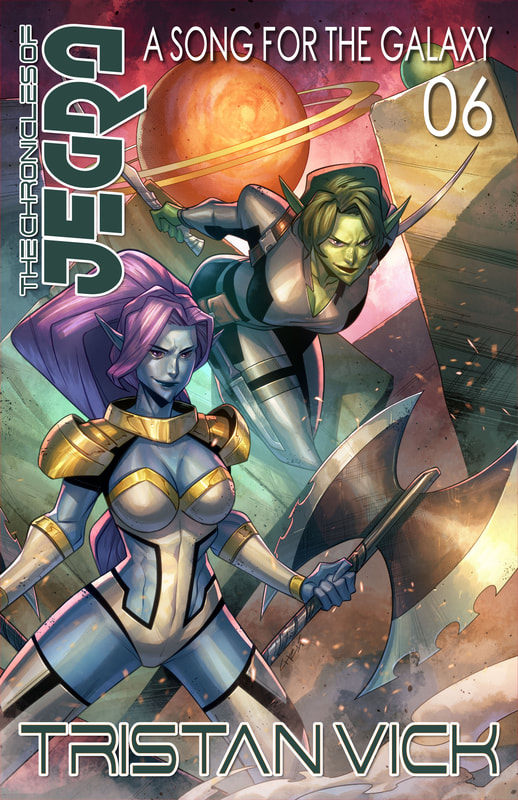
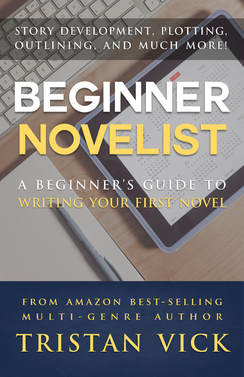
 RSS Feed
RSS Feed
